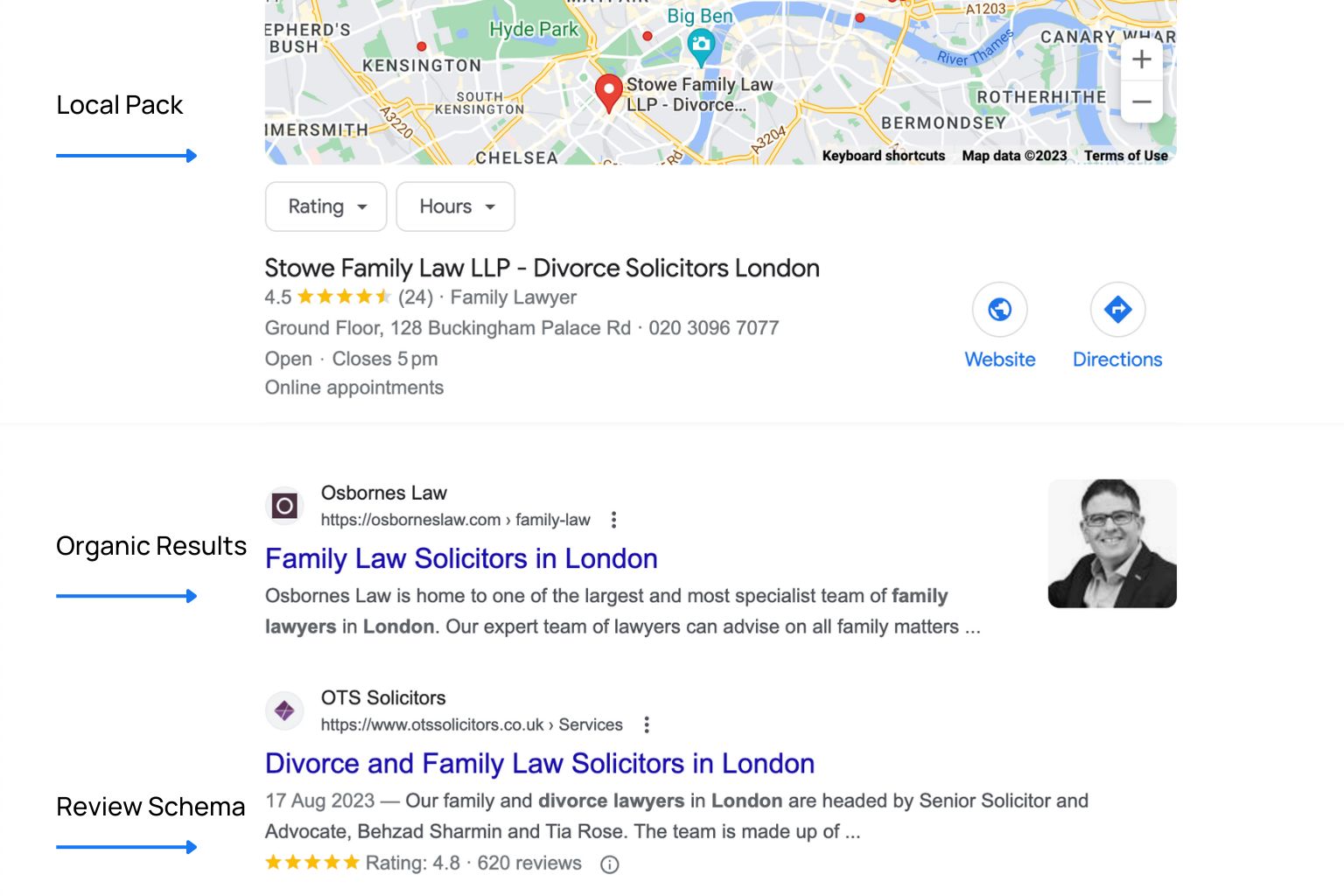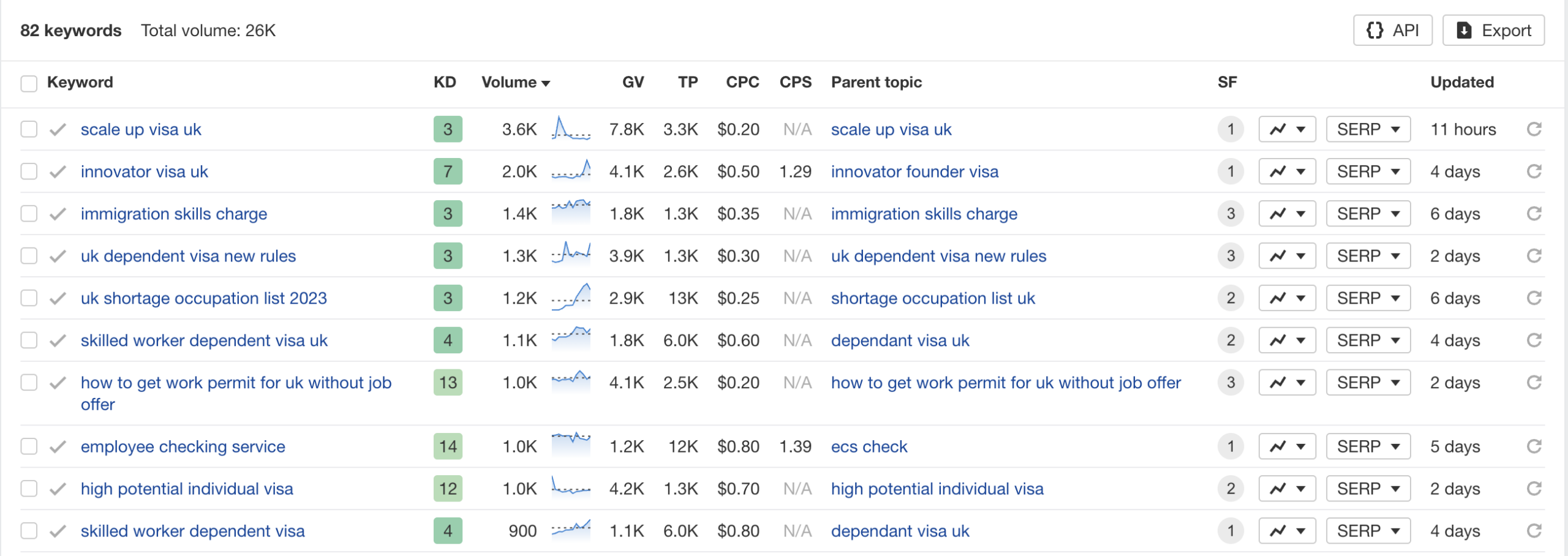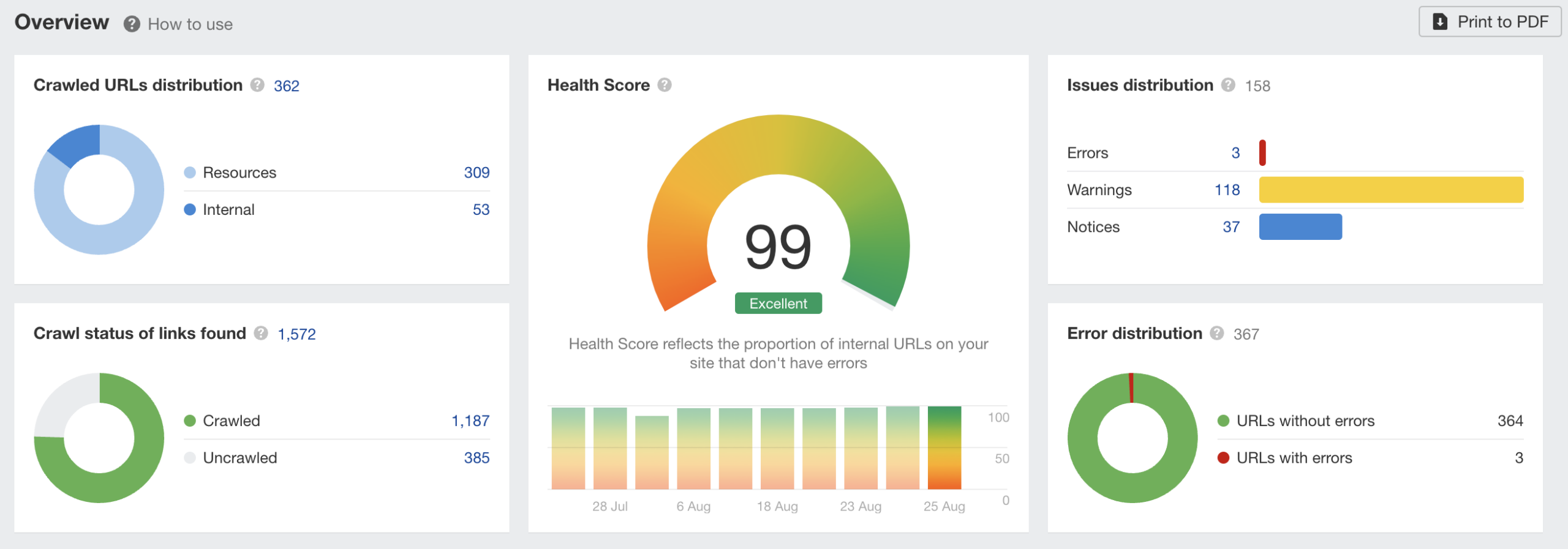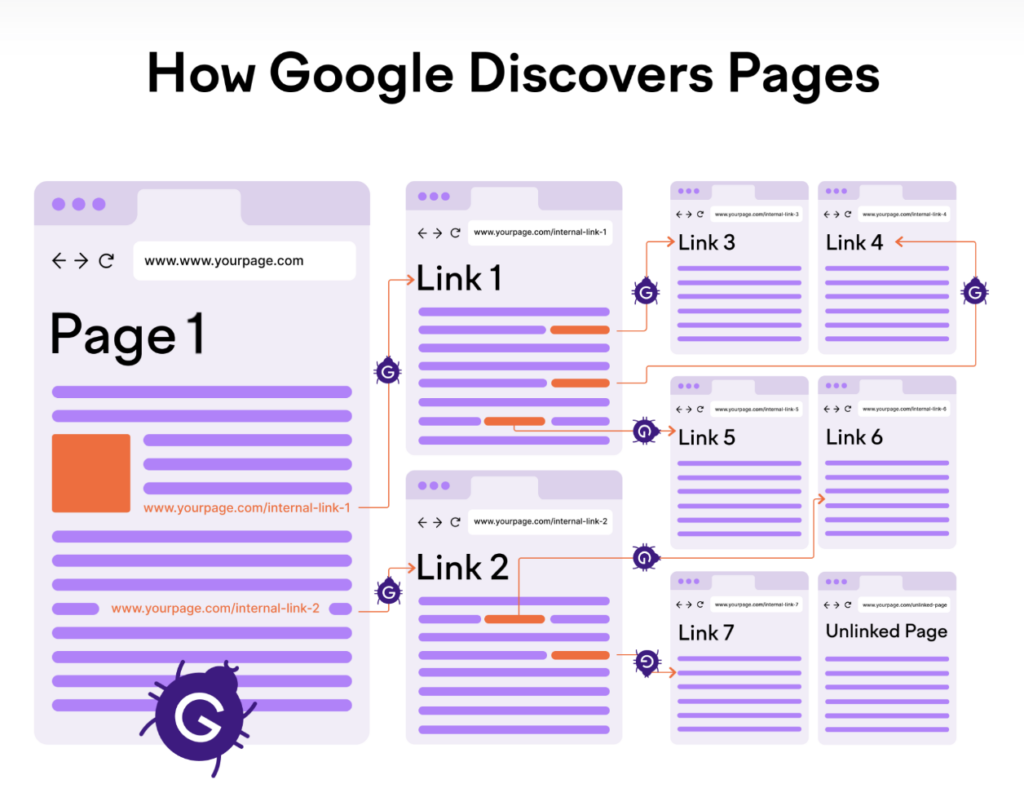In the bustling legal SEO market, standing out among the sea of organic content requires a strategic approach. Solicitors across the UK are finding it increasingly hard to grow and maintain their traffic. In addition, powerful tools such as word-of-mouth and referrals are not growth-enabling and have their own limitations. Thus, solicitors and lawyers must invest in their website, content, and overall SEO to capture potential clients' attention effectively. Search Engine Optimisation (SEO) is a vital tool in the modern lawyer's toolkit, enabling law firms to reach clients who are actively seeking legal services.
Importance of SEO for Solicitors
How can a law firm execute an effective SEO strategy that drives tangible results? This comprehensive guide will outline 11 actionable tips to boost your law firm's search rank, helping you navigate the intricate world of SEO. From understanding the importance of SEO for solicitors to practical strategies for keyword research, content mapping, backlinking, and more, this blog aims to be a one-stop resource for law professionals looking to make their mark in the online space.
By the way, we do provide this as a service, so if you’re interested, make sure to make an enquiry here.
How is AI making SEO more difficult for Solicitors and law firms?

With tools such as chat GPT & Open AI, law firms need to make greater efforts to keep and grow their reach. Why? Well, once a tool is free and accessible, everyone starts using it, which then leads to an overabundance of content on the internet. Hence, Google needs to take a harsher approach to consider what constitutes as valuable content.
SEO Basics for Solicitors

By targeting specific keywords, creating valuable and relevant content, and implementing best practices in SEO, law firms can significantly increase their visibility on search engines such as Google. More interestingly, Bing has come into the spotlight after it acquired chat GPT. But for now, it’s safe to say your focus should be on Google rankings. Good content and, in general, inbound marketing not only lead to higher search rankings but also bring in more qualified leads.
SEO Brings More Relevant Traffic If Done Right
By utilising SEO, your website will show up more often in search results for search queries related to the services you offer. It means potential clients actively seeking legal assistance will find you, increasing the likelihood of conversion. Now some firms or even SEO agencies just publish blogs for the sake of publishing something, without taking into consideration aspects such as, keyword quality, intent and volume. We assume you’re working with a professional company that takes care of these aspects.
Less Reliance on PPC and Google Ads and Channel Diversifications
With SEO, solicitors and lawyers are not paying for each click; that in itself is a big saving. In addition, once your content starts ranking, you are essentially diversifying your marketing strategy and reducing the risk of flaunting by one channel.
It’s Free Clicks!
Think of it this way: PPC is light renting top spots from Google, while SEO is like a mortgage; you’re securing those places after investing enough time and resources. The traffic from SEO is technically free. The main expense is usually the time and effort spent laying the groundwork for your SEO campaigns. Once that’s out of the way, you'll need to invest in maintaining your ranking, but the clicks themselves come at no cost.
Keeping up with the competition
Staying up-to-date with SEO practices is crucial in the legal industry today. If you want to keep up with your competitors, it's important to optimise your website. Falling behind can create a cycle where they always have the advantage in digital marketing.
How Long Until Your Legal SEO Campaign Shows Results?

SEO is considered by many as a long-term investment. In reality, it’s about how much time and money you want to put into it every month. We have campaigns that start showing results in just a month! That typically requires more resources to fast-track things, but it’s certainly possible and doable. In addition, your starting position matters too; if you’re starting from scratch, then campaigns will probably see noticeable results in 3-6 months. However, keep in mind that ongoing efforts are required to maintain and improve your rankings.
Consider The SEO Resources You’d Need
As a solicitor, you’d need a blend of SEO software, knowledge, and expertise:
1. An understanding of the legal content writing:
It's not just about keywords; it's about knowing what those keywords mean to potential clients. Understanding legal jargon and the specific needs of legal clients ensures that your SEO efforts resonate with the right audience.
2. Keyword research software (Ahref or SEMrush):
These tools help you find the terms that your potential clients are searching for. By targeting these keywords, you can make sure your content aligns with what people are actually looking for.
3. Content creation specialist:
Having someone skilled in writing and optimising legal content is essential. This specialist ensures that the content is not only informative but also well-crafted to rank highly on search engines.
4. Technical SEO know-how:
This involves understanding the underlying structure of websites. From site speed to mobile optimization, these technical aspects can make or break your site's SEO performance.
5. AI tools:
Be cautious when using AI tools like Jasper and Chat GPT. Issues like plagiarism and outdated or biased content are common problems with these platforms.
Many firms choose to hire an SEO expert or agency with experience in the legal field (like us 🙂) since, in reality, it lowers clients' overheads and allows them to focus on serving their clients and growing their business. Plus, an experienced agency brings the added benefit of strategic insights and industry best practices, further ensuring the success of your SEO efforts.

11 Ways to Boost Your Law Firm’s Traffic
Now that you know all about the resources and tools needed to launch your Solicitor SEO campaign, let’s dive into some practical tips and actionable things lawyers and solicitors can do to jump-start their SEO and traffic. These tips have been honed through hands-on experience, enabling you to connect with the right audience in a way that truly resonates.
1. Start with the Keyword Research

Understanding what potential clients are searching for is the bedrock of a successful SEO strategy. Your content should be query-driven. Meaning any piece of content or service should be written with an understanding of what users would want to see.
Conduct thorough keyword research. There are free tools such as Google's Keyword Planner and paid tools such as Ahref Keyword Research and SEMRush Magic Keyword tool that will help your law firm Identify relevant terms that resonate with your legal services.
Consider factors like search volume, competitiveness (also known as Keyword difficulty), and user intent. This foundational step ensures that your content and strategy align perfectly with your target audience's needs and interests. Invest adequate time in this step, as it plays a critical role in the long-term success of your campaign.

2. Create a Content Map and Prioritise High Volume and Easy-to-Rank Keywords
After identifying the key queries and terms with your keyword research, crafting a strategic content map becomes essential. Focus on prioritising those keywords with substantial search volume and lower competitiveness (or Keyword difficulty). Targeting these terms aligns your content strategy with real user needs and positions you for quicker success. Your content map serves as a roadmap, guiding your content creation to align with your overall goals and the interests of your potential clients. This is not merely a task but a strategy that directs your efforts toward tangible results.
3. Write Content That Is Well-Structured and Adds Value
Informed by your keyword research and content mapping, each piece of content you write should be well-structured and provide value. It's not just about answering a query; it's about engaging your reader with informative insights and practical solutions. Make legal concepts easy to understand by breaking them down into clear and concise language that connects with your audience. Use subheadings (H1, H2, and H3s) and bullet points to prompt readers to delve deeper. Every word you pen should strengthen trust and authority, showcasing your firm as the expert choice. This approach, grounded in understanding and meeting user needs, builds a connection that extends beyond the screen.
4. Conduct Competitor Backlink Analysis
Though it might be time-consuming, reviewing your competitor's backlink profile is a treasure trove of insight into potential link-building opportunities for your own law firm website. A good SEO strategy starts with situational awareness, Identifying what's worked for your competitors, and then tailoring it to your advantage. By using tools such as Ahrefs, Moz, or Semrush, you can gain a comprehensive understanding of your competitors' backlink profiles. You can then target those domains that align with your legal expertise. This strategy isn't about imitation; it's about strategic positioning to achieve quick wins. You will then see a pattern in referring domains, which will help you find similar sites to get backlinks from!
5. Launch Your Outreach Link Building Campaign
Backlinks are like a vote of confidence; the more quality and quantity you have, the higher the chances of appearing on the first page results! For that matter, guest posts on reputable law blogs can boost your backlink profile and, with it, your website’s domain authority (DA/DR). Instead of chasing quantity, focus on the quality of backlinks. Getting relevant links from industry-specific legal blogs (i.e. immigration law blogs for immigration solicitors) and sites that are aligned with your services have a higher impact than from some random website. Backlinks are often gained through outreach email campaigns with personalised pitches that demonstrate your expertise.
6. Optimise Your Google My Business
For many solicitors and lawyers, Google My Business is often the first touchpoint with a potential client. An inaccurate or incomplete profile won't just look unprofessional; it can turn potential clients away. Detail every aspect of your practice, from the services you offer to client testimonials. Encourage clients to leave reviews and respond to them in a timely manner. Make sure you utilise the product & services sections of your profile as well as posting updates regularly. Google My Business (GMB) profile is one of the best ways to improve your local SEO!
7. Be Present on All Legal Directories
Legal directories hold significant power in shaping a law firm's local SEO presence. In the UK, platforms like The Law Society, Chambers and Partners, and Solicitors.co.uk are often the first port of call for individuals seeking legal guidance. By creating compelling and accurate profiles on these sites, you're not just listing your services; you're connecting with those in need right where they look.
Citations and directories (especially industry-related ones) provide valuable local SEO benefits. Each link from the citation shows Google your location, services and reviews you have acquired on those platforms. This will then is taken into account when it comes to local service rankings such as “immigration solicitors in London”. Thus these listings need to resonate with your firm's unique selling propositions and expertise.
8. Run a Technical SEO Audit

The foundation of any successful Solicitor SEO strategy lies not only in content and links but also in the technical aspects of the website itself. A technical SEO audit is basically a health check-up for your site, ensuring that it is running smoothly and efficiently. Here we have listed a few important technical SEO checks for lawyers and solicitors:
- Meta Tags: Essential for telling search engines what your page is about.
- Site Speed: Even a slight delay can impact your conversion rate.
- Mobile Responsiveness: Ensure your site adjusts and displays correctly on all devices.
- Internal Linking: Crucial for helping both search engines and users navigate your site.
Using tools such as Google's Search Console, Screaming Frog SEO Spider, or Sitebulb can provide valuable insights into your site's inner workings. These tools help you uncover issues such as broken links, duplicate content, or improper redirections that might be affecting your site's ranking.
By identifying and rectifying these underlying problems, you're paving the way for your content and outreach strategies to thrive. A technical SEO audit isn't just a one-off task; it's an ongoing process that ensures your website continues to perform at its peak, aligning with Google's ever-changing algorithms and the unique demands of your prospective legal clients.
9. Track Your SEO Progress

Monitoring your SEO campaign’s KPIs is key to gaining and maintaining traffic. As an SEO agency, we recommend using tools such as Google Analytics (GA4) along with Google Search Console, which are both free, by the way. You could also use paid tools such as SEMrush to use fancy tools such as keyword default and rank tracking. Pay attention to metrics such as traffic growth trends, keyword ranking, engagement rate, and finally, conversion rates.
Make data-driven adjustments to your content; this way, your blog and service pages will better resonate with your audience. Regular tracking offers a roadmap to success, allows for timely changes, and helps you adapt to the evolving legal SEO.
10. Create Free Downloadable Guides to Build Trust and Your Mailing List
Offering free downloadable guides can be a strategic move in building both trust and your client mailing list. These guides will help you build trust with your warm leads. Something that will contribute to a higher conversion rate.
Imagine a prospective client grappling with immigration issues – a well-crafted guide on immigration law procedures can be a beacon of clarity for them.
By asking for an email address in exchange for the guide, you grow your mailing list with engaged contacts who are already interested in your services. It’s not merely a transaction. It’s the beginning of a relationship. Crafting these guides with care and aligning them with the needs and concerns of your clientele will set the tone for future interactions and showcase your law firm’s genuine interest in assisting its clients.
11. Make Sure Your Website is User Friendly

While not directly affecting SEO unless there is a user experience (UX) issue, ensuring that your website is user-friendly is a complementary aspect that leverages the clicks earned through SEO in the most effective manner.
A website that’s difficult to navigate can quickly frustrate potential clients, while an intuitive design encourages them to explore further. Google’s Search Console will notify you if there's a UX problem that might affect your site's ranking. Beyond these notifications, focusing on user-friendliness has its own merit.
Consider your website should be easy to navigate, clear, and guide visitors to find relevant information with ease. From well-placed calls to action to fast-loading pages, every aspect should resonate with professionalism and accessibility.
It’s about more than just SEO; it’s about ensuring that once potential clients find you, they enjoy a smooth and engaging experience that reflects the quality and attention to detail your firm provides in the legal sphere. Making your website user-friendly isn't just an aesthetic choice; it's a strategic decision that enhances your overall online presence and client interaction.
Pro Tips to Succeed Faster with Your Legal SEO Campaign
1. Utilise Internal Links
Internal linking is not just about connecting pages; it's about building a logical structure that guides visitors through your website. It helps in distributing link equity across your site, improving navigation, and can even boost page views. Strategically placing internal links to relevant content or services keeps readers engaged and can lead them further down the conversion funnel. It's a subtle way to encourage them to explore more about what your law firm offers.

2. Add Video to Boost Engagements
In today's visually driven online landscape, videos can provide a significant boost to user engagement. They aren't just multimedia additions; they're dynamic tools to explain complex legal concepts, showcase client testimonials, or even introduce your legal team. Videos can humanise your brand and make your law firm more relatable. Moreover, embedding relevant videos can increase the time visitors spend on your site, which could positively influence your site's SEO. You could easily upload your video on YouTube or Vimeo and place the embed code on your website.
3. Conduct Content Gap Analysis

Content Gap Analysis isn't merely an evaluation process; it's an opportunity to discover unexplored areas in your content strategy that can resonate with your target audience. By comparing your content with competitors and aligning it with user search intent, you can identify missing topics or areas where you can add unique value. This process helps you to uncover new opportunities and expand your content in directions that are aligned with your prospective client's needs and interests. It's about identifying where you can fill the gap with authoritative and valuable content that sets your law firm apart in the legal market.
Actionable Takeaways: Your Next Steps for Law Firm SEO Success
Complete Your Google My Business Profile
It's often the first touchpoint for potential clients. Make sure every detail, from services to client testimonials, is accurate and up-to-date. Don't forget to encourage clients to leave reviews.
Run a Technical SEO Audit
Use tools like Google Search Console or Screaming Frog SEO Spider to identify weaknesses in your website’s SEO. Pay special attention to site speed, mobile responsiveness, and meta tags. Rectify these issues to enhance your site's performance.
Optimise for Local SEO via Legal Directories
Register your firm on UK-based legal directories like The Law Society and Chambers and Partners. Ensure your profiles are complete and align with your firm’s unique selling propositions.
Track Key Metrics
Monitor important metrics like traffic growth trends, keyword ranking, and conversion rates through Google Analytics and Google Search Console. Make data-driven adjustments to your SEO strategy based on these insights.
Create Free Downloadable Guides
Offer guides on topics closely related to your practice area. Capture email addresses in exchange for these free resources to build both trust and a solid mailing list.
Conclusion:
SEO for solicitors isn't just about ranking higher; it's about connecting with clients who need your services. In an increasingly online world, taking a strategic approach to your law firm's SEO can position you at the forefront of your field. Remember these key strategies to maximise success:
- Understand Your Audience: Conduct comprehensive keyword and competitor analysis.
- Build Quality Backlinks: Focus on targeted outreach campaigns and utilise legal directories.
- Optimise Technical Aspects: Regularly audit your site for optimal performance.
- Enhance User Experience: Create a user-friendly website and provide valuable content like videos and downloadable guides.
- Track and Analyse: Continuously monitor your SEO progress and adjust as needed.



